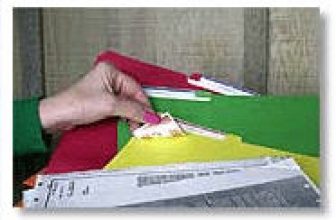
Tennessee Memorial Hospital uses RFID to track valuable equipment
[ad_1]
Chattanooga Memorial Hospital in Tennessee adopted a set of RFID solutions to solve the serious waste of implant and surgical equipment in the hospital. Hospitals lose thousands of dollars each year due to unused equipment or non-charged equipment, said Scott Hardin, director of cardiovascular services at the hospital.
In fact, due to unused equipment or incorrect charging, the hospital lost $500,000 last year alone, forcing Hardin to adjust its annual budget. “Either the equipment was gone, or it was not charged correctly, or it was placed in the wrong department,” he said. Since April this year, the hospital has adopted WaveMark’s RFID system to solve this problem.
Initially, Hardin planned to install an automated system to track the use and charges of implantable devices, catheters, and other valuable equipment, all of which have been manually tracked by hospital nurses in the past. The equipment placed on the shelf is taken by the nurse only when necessary for the operation, and the patient’s name is recorded on the paper. However, there are often cases where the equipment is taken away from the hospital, but there is no record of the patient’s use.
In order to improve visibility, Hardin considered using RFID cabinets, but felt that the entire system was too bulky and could only be used for implantable devices (catheters need to be hung on hooks instead of stacked on shelves). He also studied the bar code scheme, but came to the conclusion that bar code scanners are prone to errors; if employees forget to scan or fail to scan when picking up items, the system will not work properly. In the end, Hardin chose WaveMark’s RFID solution.

Tennessee Memorial Hospital uses WaveMark RFID solution to track valuable equipment
Using this RFID system, Memorial Hospital staff received new products in a warehouse close to the check-in station. The barcode scanner of the WaveMark desktop reader connected to a computer was used to scan the barcode serial number of each device, and then the same machine was used to read the new product. The device reads a passive 13.56 MHz RFID tag that meets the ISO 15693 standard, and pastes the tag on the device. The ID code of the tag corresponds to the serial number of the barcode and other product information, such as size, type, expiration date, and charge. standard.
Before the operation, the products were stored in cabinets in different research rooms. There are a total of 10 cabinets, 6 installation shelves, and 4 special suspension ducts and wires. There are multiple RFID readers installed in each cabinet-usually one on a shelf, according to Colleen Terry, WaveMark marketing director. The reader captures the ID codes of the tags and sends them and the time and date to the WaveMark web server software via an Ethernet cable every 20 minutes.
When a piece of equipment is taken away, the cabinet reader stops sending the equipment ID number to the back-end system. The WaveMark software determined that the device was taken away and changed its status to “missing”. If the device is brought to the operating room, the staff uses a handheld WaveMark RFID/bar reader to scan the barcode on the patient ID bracelet, and then read the RFID tag of the device to match the patient with the device. In this way, the MediTech medical software can generate a list of charges for the patient’s charges for this item.
If the device is not scanned within the preset time, corresponding to the patient ID, the software produces an alarm to notify relevant personnel that the device is missing.
After adopting this system, Memorial Hospital has saved costs, Hardin said, partly because it is easier for staff to record equipment usage and equipment charges are more accurate. The agency also found faults in charging and theft of equipment. For example, on a Sunday last month, four catheters were taken out of the cabinet but not used. The WaveMark system detected this behavior. Although the system could not detect who removed the catheters and failed to retrieve them, the hospital knew that the catheters were lost on Sunday-it is impossible to use them on that day-so it can be concluded that the catheters were stolen. After reaching this conclusion, the hospital locked the cabinet doors and planned to install security cameras.
In another example, Hardin said, because the system found that two catheters were used but did not charge, the hospital corrected the error in time and avoided a loss of $2500.
Chattanooga Memorial Hospital is very satisfied with this system. So far, the hospital has completed the labeling of 12,000 items.
[ad_2]




